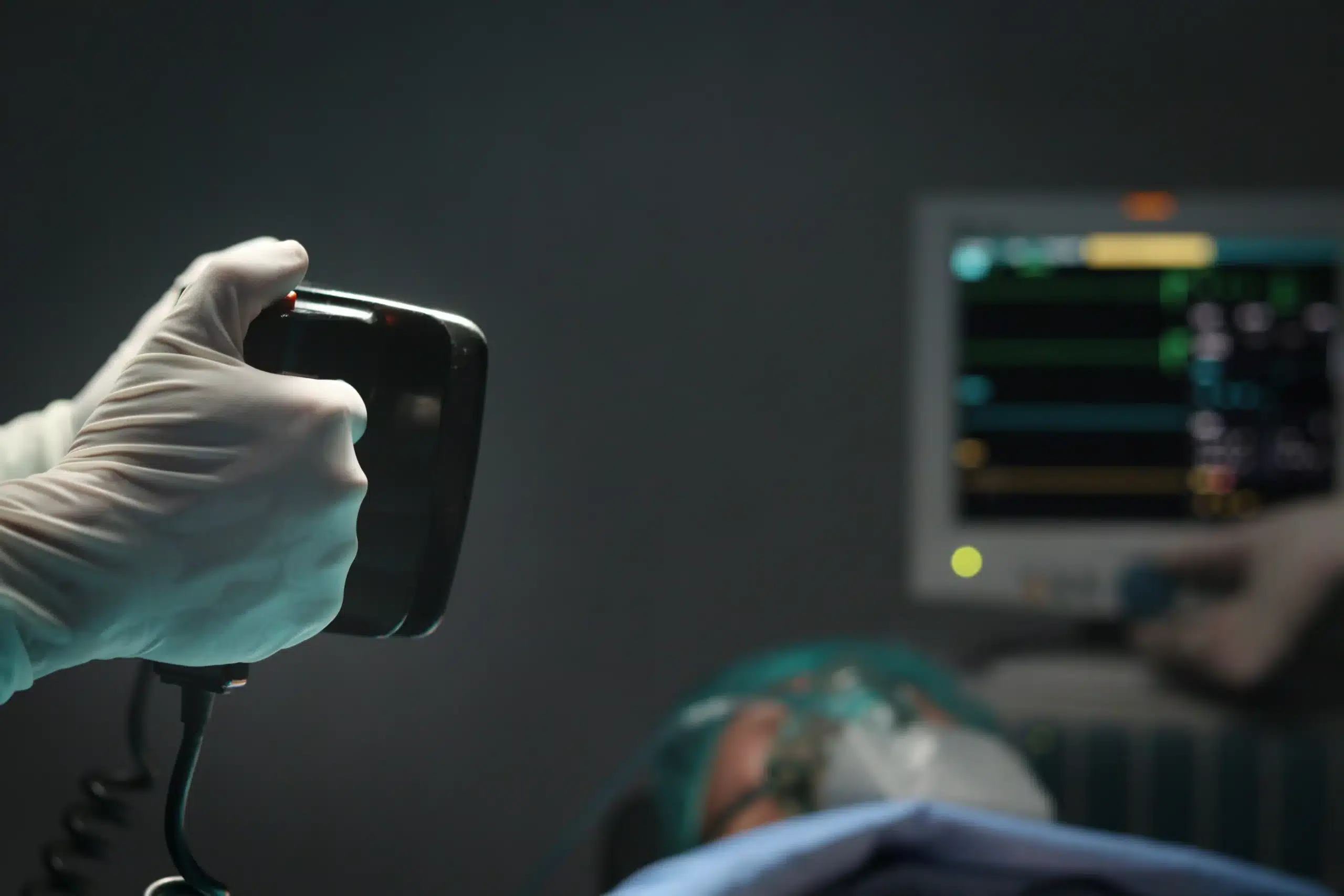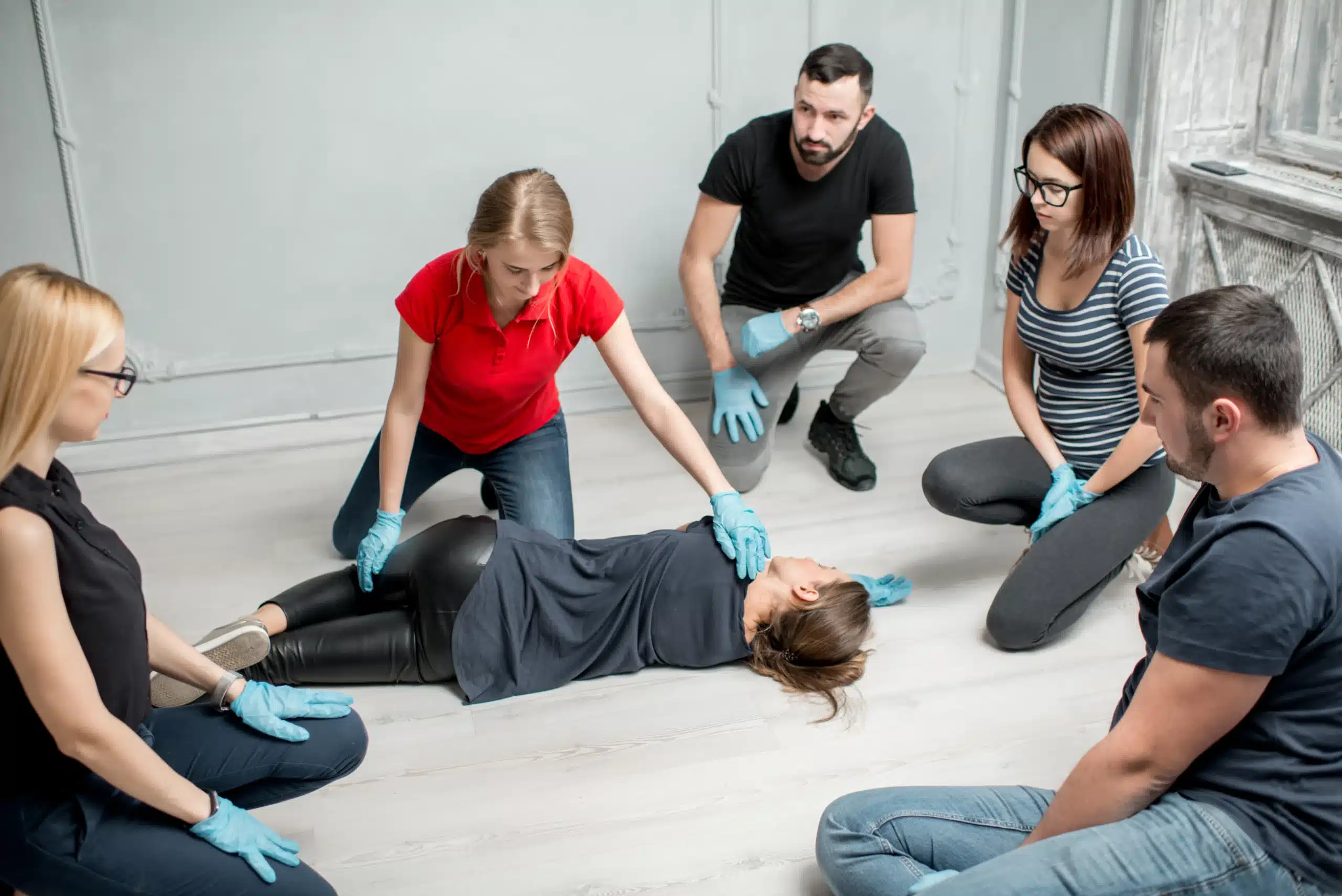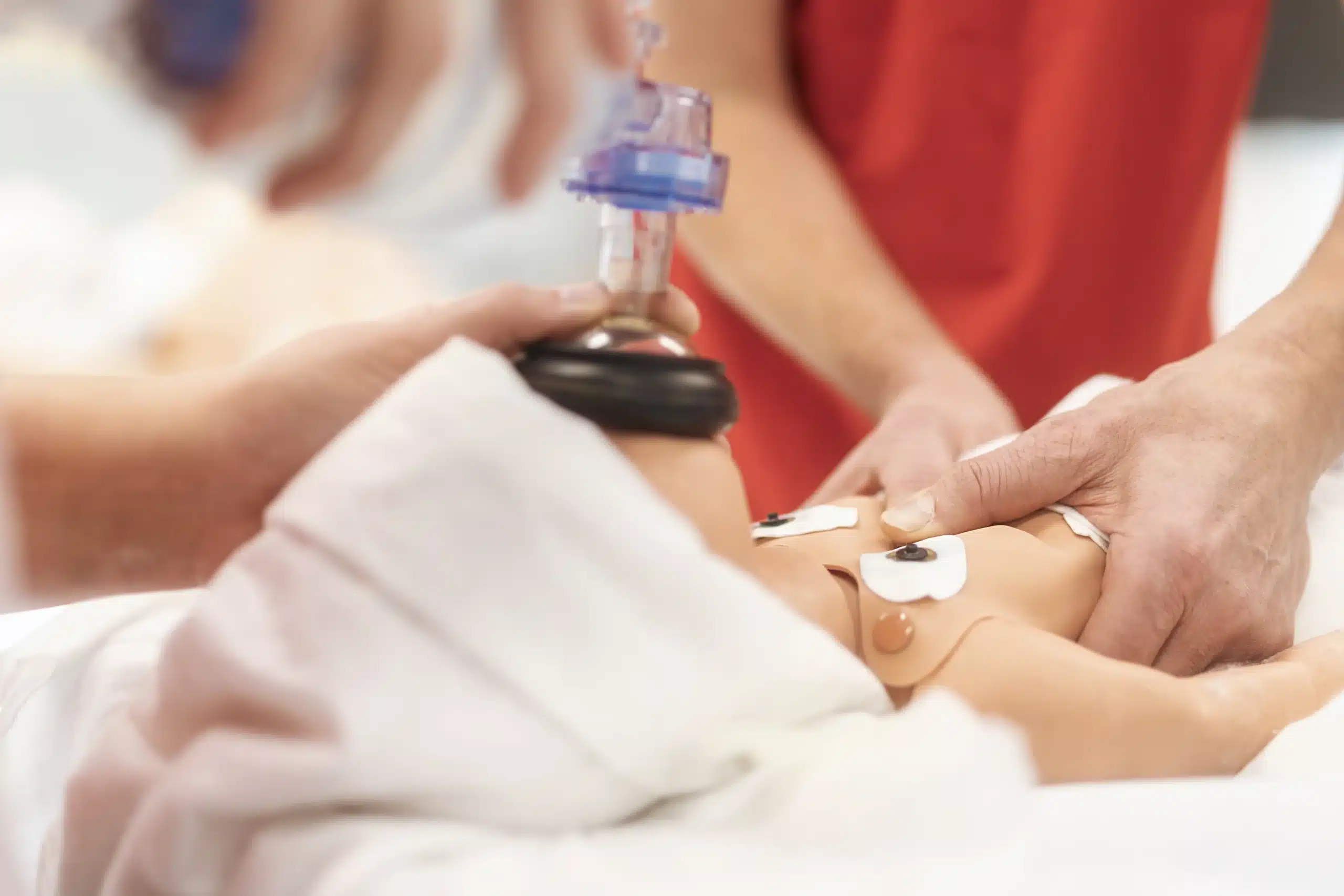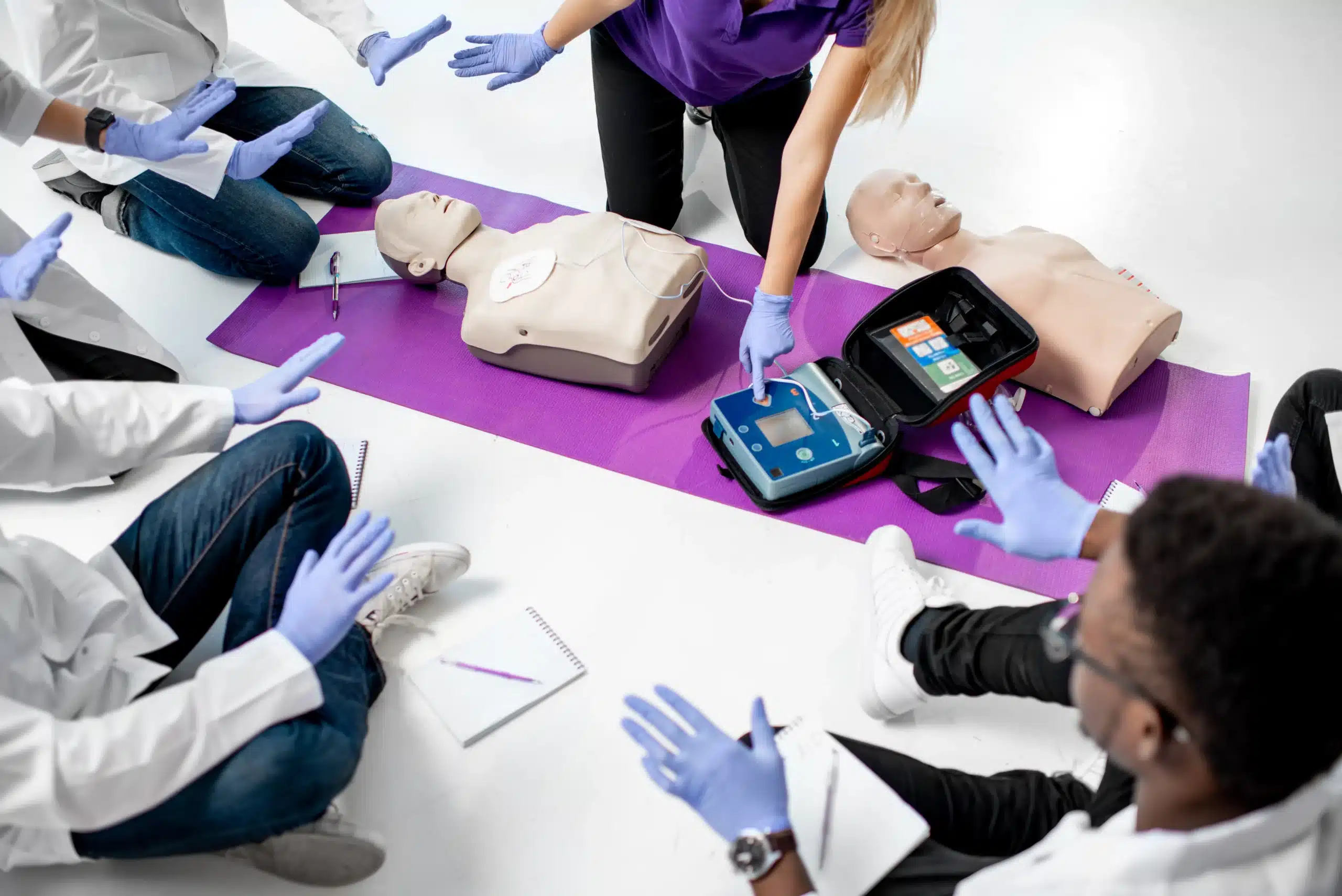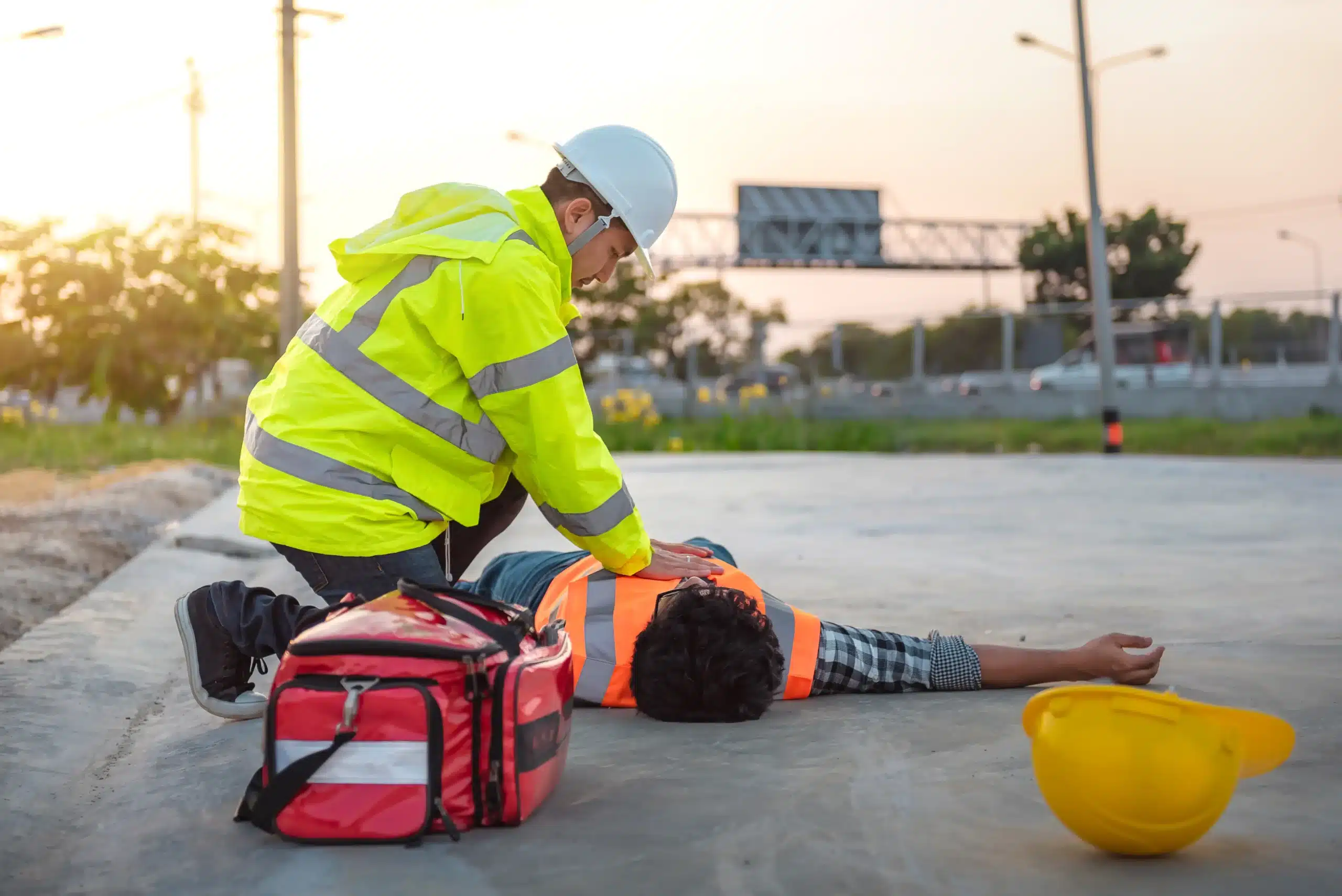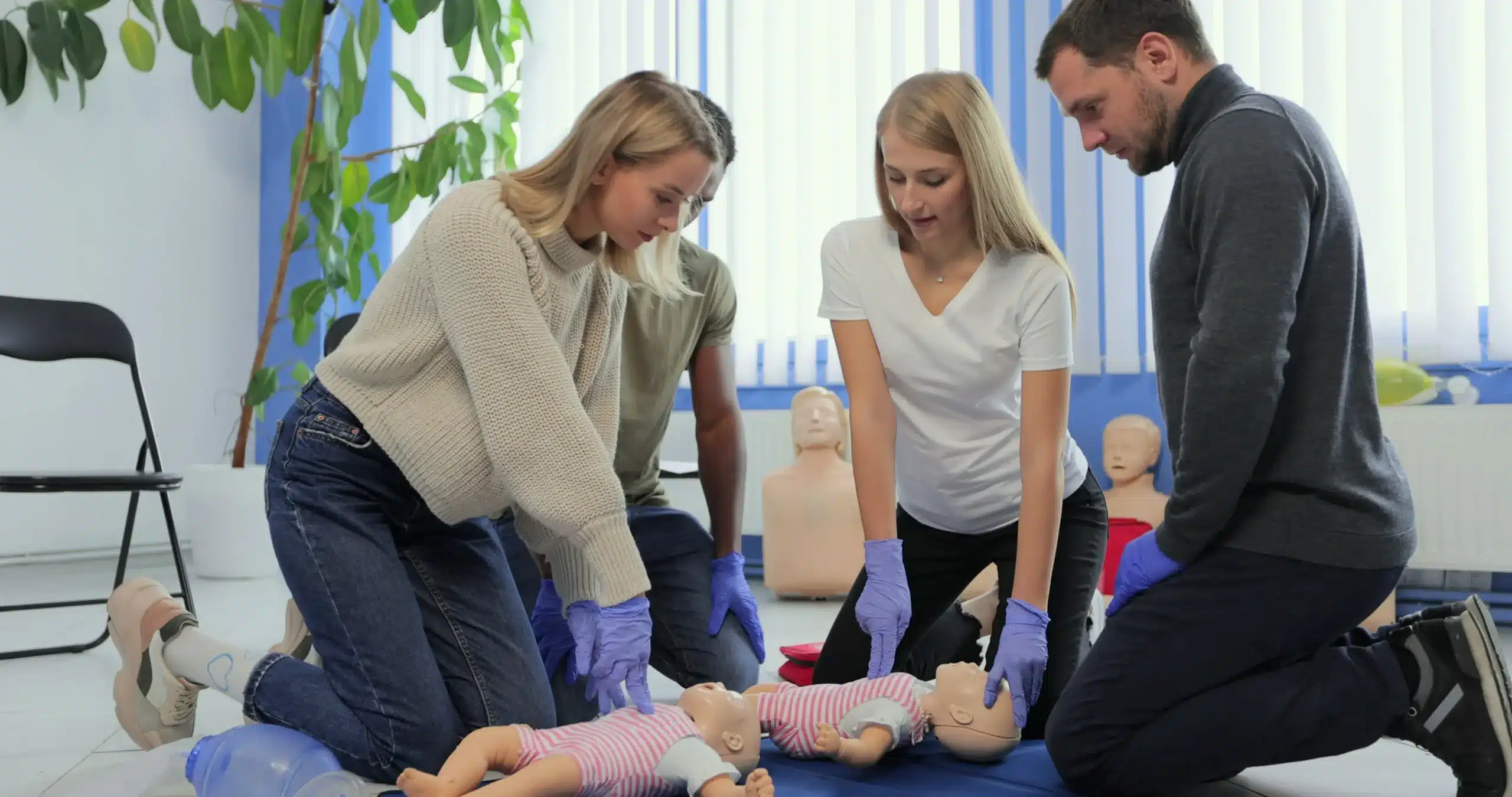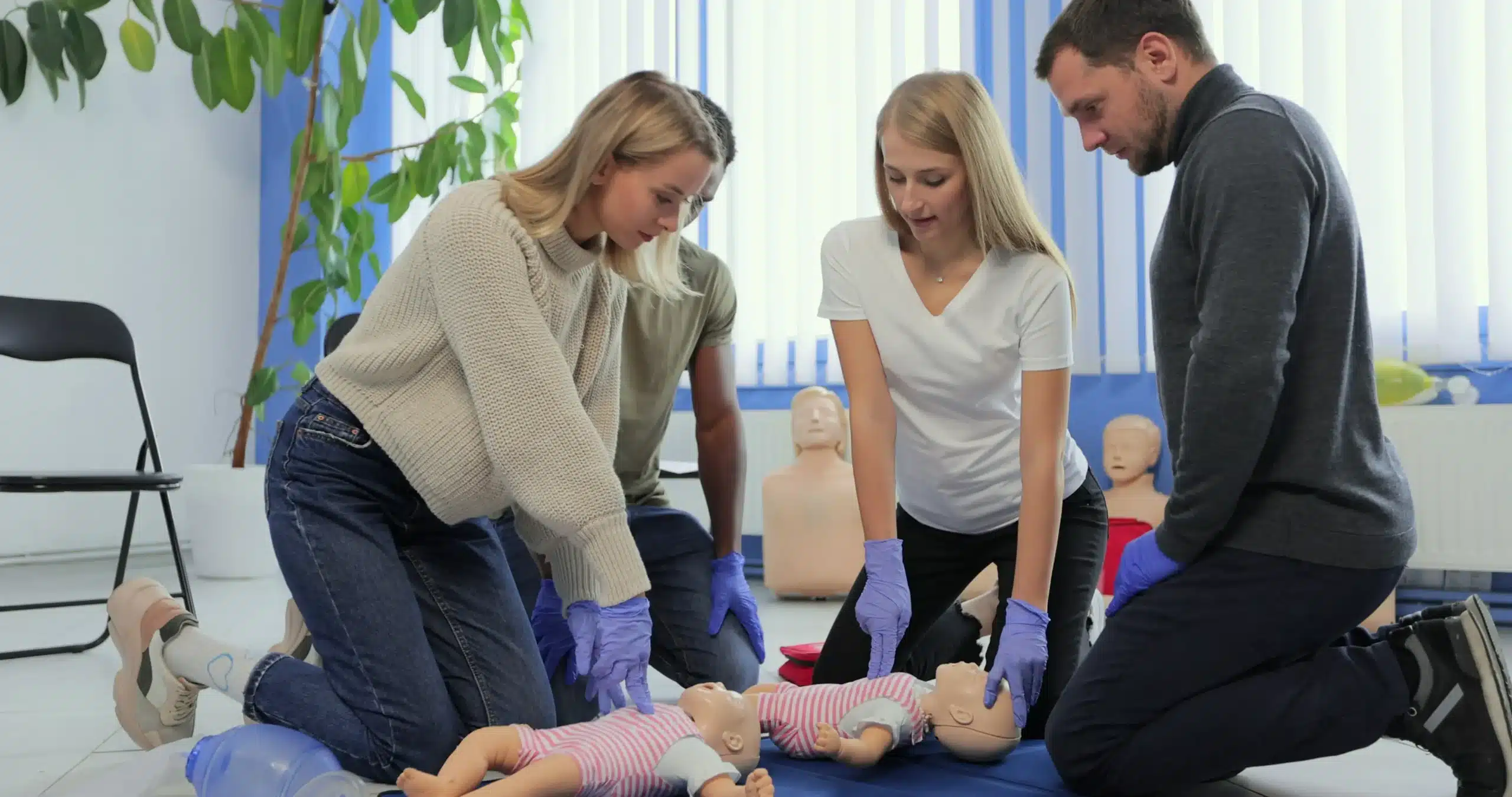Life throws curveballs, and sometimes those curveballs require immediate action. CPR certification equips you to handle those critical moments, but certifications expire. That’s why CPR renewal in Oakland is so vital. It’s not just about checking a box; it’s about ensuring you’re confident and capable when every second counts. This guide will walk you through the process of finding the right CPR renewal class in Oakland, discussing different options, costs, and what to expect from the training. We’ll also explore why staying up-to-date with the latest CPR guidelines is so essential for providing effective care in an emergency.
Key Takeaways
- Stay current with life-saving skills through regular CPR renewal: Find a convenient course format—in-person, online, or blended—and ensure it aligns with the latest AHA guidelines. This keeps your skills sharp and your confidence high.
- Oakland offers diverse CPR renewal options: Explore various providers, including Safety Training Seminars, the American Red Cross, and others, to find a course that matches your needs and schedule. Consider factors like cost, location, and certification type.
- Preparation and ongoing practice are key: Refresh your knowledge before class and use available resources to maintain your skills between renewals. This reinforces your learning and ensures you’re always ready to respond effectively.
What is CPR Renewal in Oakland?
CPR renewal in Oakland is how healthcare providers and other professionals stay current with their life-saving skills. It’s the process of recertifying in Cardiopulmonary Resuscitation (CPR) to ensure you’re up-to-date on the latest guidelines from organizations like the American Heart Association (AHA). These guidelines are regularly updated to reflect the most effective techniques based on ongoing research.
Think of it like renewing your driver’s license—it’s not just a formality. Regular CPR renewal ensures you can confidently and effectively respond to cardiac emergencies. This is especially critical for healthcare professionals, but also valuable for anyone who wants to be prepared to help in a crisis. Whether you’re a doctor, teacher, or parent, maintaining your CPR certification demonstrates your commitment to safety and preparedness. In Oakland, you’ll find various options for CPR renewal, including AHA-certified BLS courses covering essential skills like chest compressions, rescue breaths, and using an AED.
Find Top CPR Renewal Classes in Oakland
Finding the right CPR renewal class in Oakland depends on your preferences and needs. Here are a few reputable options:
Safety Training Seminars
Safety Training Seminars offers various American Heart Association (AHA) certification courses, including BLS, ACLS, and PALS. They emphasize a comfortable learning environment with hands-on training, ideal for those who thrive on practical experience. Their group discounts make them a smart choice for companies needing multiple certifications. Conveniently located for residents of Alameda, Oakland, and Berkeley. They also offer the fast certification RQI program and maintain a low price guarantee.
CPR Certification Oakland
CPR Certification Oakland provides in-person classes with same-day certification cards if you need your AHA BLS CPR and AED recertification quickly. Their course covers essential skills, from assessing the need for CPR to operating an AED. This training satisfies OSHA requirements and offers a direct path to renew your credentials. Visit their website for the latest class schedules and pricing.
AED CPR
AED CPR offers nationally accredited online CPR renewal courses for those who prefer online learning. Aligned with AHA/ECC/ILCOR/OSHA guidelines, these courses are valid across all 50 states. This flexible format lets you complete the training at your own speed and wherever you’re located.
American Red Cross
The American Red Cross also offers BLS certification and renewal classes in Oakland. Geared towards healthcare providers, their training uses real-life scenarios to equip participants for various emergencies. These courses cover CPR, AED use, and relieving airway obstruction for adults, children, and infants. Check their website for class schedules and registration details.
Explore CPR Renewal Costs & Value
Knowing the cost of CPR renewal is important, but understanding its value is crucial. This section breaks down typical costs, highlights ways to save, and emphasizes the priceless return on your investment.
Average Pricing
CPR renewal costs in Oakland can vary. At Safety Training Seminars, our renewal course is priced at $64.95, covering all the training and certification you need for two years. You can find more details on our BLS renewal page. For comparison, the American Red Cross also offers BLS renewal, valid for two years. Check their website for current pricing and course information. Online options can be more budget-friendly, with some providers offering renewals for under $20.
Find Discounts and Promotions
Look for opportunities to save on your CPR renewal. Many providers offer discounts on training materials or periodic promotions. Check websites like the American Red Cross for deals on their BLS courses and products. Some online providers may have free introductory courses or satisfaction guarantees, allowing you to explore the training before committing.
Group Discounts
Renewing CPR certification as a group can lead to significant savings. If you’re coordinating training for your workplace or group, inquire about discounts. Many providers offer reduced rates for groups of five or more. This can be a smart way to ensure everyone stays certified while managing costs. You can explore group discount options at Safety Training Seminars.
Safety Training Seminars’ Low Price Guarantee
At Safety Training Seminars, we believe that high-quality CPR training should be accessible. We offer a low price guarantee on our CPR renewal courses, ensuring you receive excellent instruction and certification without overspending. We’re committed to providing affordable, up-to-date training that empowers you to make a difference.
Discover Class Formats & Duration
Finding the right CPR renewal class format is key to a successful recertification. Let’s explore the different options available: in-person, online, and blended learning. Each format offers unique advantages, catering to various learning styles and schedules.
In-Person Classes
In-person CPR renewal classes provide a hands-on, interactive learning environment. You’ll work directly with a certified instructor, allowing for personalized feedback and real-time correction. This format emphasizes practical skills development through demonstrations and practice scenarios. For example, Safety Training Seminars offers AHA-certified BLS CPR and AED recertification classes in Oakland, with the convenience of same-day certification cards. In-person classes are ideal for those who thrive in a structured setting and value direct interaction. Group discounts are also often available.
Online Renewal Courses
If your schedule demands flexibility, online CPR renewal courses offer a convenient alternative. You can complete the coursework at your own pace, anytime, anywhere. Many providers, including AED CPR, offer nationally accredited online CPR renewal courses that meet AHA/ECC/ILCOR/OSHA guidelines. This format often involves interactive modules, videos, and assessments. Online renewal is a great option for those juggling busy schedules or who prefer self-directed learning. The National CPR Foundation is another reputable provider of affordable online CPR and First Aid recertification.
Blended Learning Approaches
Blended learning combines online learning with in-person skills sessions. This hybrid approach allows you to cover theoretical material online at your convenience, then attend a shorter, focused in-person session to practice and demonstrate your skills. The Red Cross in Oakland offers BLS certification and renewal training in this format. Blended learning is particularly beneficial for healthcare providers, as it often incorporates local protocols during the in-person group sessions. This format offers a balance of flexibility and hands-on training.
Get Certified: Types & Validity
Knowing the different types of CPR certifications and their validity is key to choosing the right course. This section breaks down what you need to know about American Heart Association certifications, other recognized options, and how often you need to recertify.
American Heart Association Certifications
The American Heart Association (AHA) sets the standard for CPR and emergency cardiovascular care. Their certifications are widely accepted and respected. AHA certifications like Basic Life Support (BLS) for healthcare providers, Advanced Cardiovascular Life Support (ACLS), and Pediatric Advanced Life Support (PALS) equip you with the knowledge and skills to respond confidently to various emergencies. These certifications cover everything from essential CPR techniques and AED use to effective team dynamics and advanced airway management. Safety Training Seminars offers a comprehensive range of AHA courses in Oakland, making it easy to get certified or recertified.
Other Recognized Certifications
While AHA certifications are prevalent, other organizations offer recognized CPR training. The American Red Cross, for example, provides CPR and First Aid certification courses suitable for various professions and the general public. These programs adhere to established guidelines and provide a solid foundation in lifesaving techniques. It’s always a good idea to check with your employer or regulatory body to confirm which certifications they require.
Certification Expiration & Renewal Frequency
CPR certifications don’t last forever. To stay current and maintain your skills, renewal is typically required every two years. This ensures you’re up-to-date on the latest guidelines and best practices. Regular renewal also demonstrates your commitment to providing high-quality care and reinforces the importance of consistent training for emergencies. Don’t let your certification lapse – plan ahead and schedule your renewal course in advance.
Prepare for Your Renewal Class
Getting ready for your CPR renewal class is straightforward. Here’s what you can expect and how to prepare:
Skills Assessment
Your renewal class will include a skills assessment to ensure you’re up-to-date on the latest CPR techniques. This typically covers recognizing the steps of CPR, finding a pulse, performing chest compressions, restoring breathing, and using an Automated External Defibrillator (AED). Think of it as a refresher to reinforce your knowledge and confirm your readiness for emergencies.
Hands-On Practice
Hands-on practice is a crucial part of your CPR renewal class. The training environment is designed to be friendly and relaxed, giving you ample opportunity to practice and build confidence. This practical approach ensures you not only understand the theory but also gain valuable experience in performing CPR techniques effectively.
Interactive Training & Real-Life Scenarios
CPR renewal training often incorporates interactive methods and real-life scenarios to prepare you for diverse emergency situations. You’ll learn how to perform CPR, use an AED, and provide airway obstruction relief for adults, children, and infants. This immersive training helps you handle real-world emergencies with competence and confidence. For local options, explore CPR renewal classes available in Oakland.
Same-Day Certification
Many CPR renewal classes offer the convenience of same-day certification. After successfully completing the course, you’ll receive your certification card, allowing you to immediately demonstrate your renewed skills. This is especially helpful for professionals who need to maintain their certification for their jobs. If this is important to you, look for CPR renewal classes in Oakland that offer this convenient same-day certification.
Choose the Right CPR Renewal Class
So, you’re ready to renew your CPR certification—fantastic! Choosing the right class can make all the difference in how well you retain those lifesaving skills. This section breaks down key factors to consider when selecting your renewal course.
Factors to Consider
First things first: make sure the certifying organization and the type of CPR certification meet your specific needs. For example, if you’re a healthcare provider, you’ll likely need an American Heart Association (AHA) certification like BLS. CPR Certification Oakland offers AHA-certified courses, often with same-day certification cards, which is super convenient if you need proof of certification quickly. Think about what’s most important to you—speed, a particular certifying body, or a specific course format—and go from there. Don’t forget to check if the renewal class offers First Aid certification as well, as this can be a valuable addition to your skillset.
Match Classes to Professional Requirements
Different professions have different requirements. Double-check what certifications are mandatory or recommended in your field. The American Red Cross also offers BLS certification and renewal tailored for healthcare providers. Make sure the class you choose aligns with your workplace’s standards so you’re fully prepared. For those working with infants, ensure the course covers NRP certification as well.
Evaluate Instructor Expertise & Engagement
A dynamic instructor can transform a good class into a great one. Read reviews or ask for recommendations from colleagues. Positive testimonials often highlight instructors who are passionate about teaching and create a comfortable learning environment. A good instructor can make all the difference in how well you grasp and retain the information, ultimately making you a more confident and effective lifesaver. Consider checking if the instructors have experience with specific groups like Pediatric Advanced Life Support (PALS) if your work involves children.
Overcome CPR Renewal Challenges
Renewing your CPR certification is essential, but we get it—life is busy. Between work, family, and everything else, finding the time for a renewal class can feel like a challenge. This section addresses common hurdles and offers solutions to make the process smoother.
Manage Time Constraints & Flexible Scheduling
One of the biggest obstacles to CPR renewal is often scheduling. Many people struggle to fit a class into their already packed schedules. Luckily, providers like Safety Training Seminars understand this and offer flexible scheduling options with classes available weekly. This makes it much easier to find a time that works for you, whether it’s a weekday evening, a weekend morning, or even a specialized session. Check with your chosen provider to see what scheduling options they have available.
Build Practical Application & Confidence
It’s one thing to read about CPR techniques, but it’s another to feel confident applying them in a real emergency. High-quality CPR renewal courses use real-life scenarios and hands-on practice to build your skills and confidence. You’ll learn how to respond to various emergencies, including CPR for adults, children, and infants, how to use an AED, and how to relieve airway obstructions. Practical application reinforces your learning and helps you feel prepared to act quickly and effectively if ever needed.
Stay Updated with Current Guidelines
CPR guidelines are regularly updated to reflect the latest medical research and best practices. Staying current with these changes is crucial for providing effective care. When choosing a renewal course, make sure it aligns with current guidelines from organizations like the American Heart Association (AHA). This ensures you’re learning the most up-to-date techniques and protocols, giving you the best chance of a positive outcome in an emergency. Reputable providers will clearly state which guidelines they follow, so you can make an informed decision.
Maintain CPR Skills
Why Practice Matters
Maintaining current CPR certification is crucial for various professions and personal preparedness. Regular practice ensures you’re familiar with the latest techniques and guidelines, significantly impacting how effectively you respond in an emergency. The American Heart Association emphasizes hands-on training to reinforce these skills, making it essential for both healthcare providers and everyday people to stay updated. Regularly refreshing your CPR skills can truly make a difference when it matters most. Knowing you can confidently perform CPR provides peace of mind in any situation.
Resources for Skill Maintenance
To effectively maintain your CPR skills, take advantage of various resources available in Oakland. CPR classes typically cover essential topics such as recognizing the steps of CPR, finding a pulse, performing chest compressions, restoring breathing, and using an Automated External Defibrillator (AED). The curriculum often enhances critical thinking and teamwork, vital during emergencies. Organizations like the Red Cross offer a friendly and relaxed learning environment with hands-on training to build confidence. Regularly attending these refresher courses helps with skill retention and keeps you informed about any updates in CPR protocols. Safety Training Seminars offers various CPR training options throughout Oakland. Consider exploring their offerings to find a course that fits your schedule and learning style.
Schedule Your CPR Renewal in Oakland
Finding the right CPR renewal class and registering is straightforward. This section walks you through the process, from finding a class to preparing for the day.
Register for a Class
CPR renewal classes are readily available throughout Oakland. Several organizations offer these essential courses, including Safety Training Seminars, which provides various AHA-certified courses like BLS, ACLS, and PALS. You can also find renewal courses through established providers like the American Red Cross and other local training centers. When choosing a provider, consider factors like location, schedule, and the type of certification offered. Check with your employer or professional organization, as they may have recommendations or even offer on-site renewal training. Many providers offer online registration, making it easy to find a class that fits your needs.
Prepare for Your Class
Once you’ve registered, take some time to prepare for your CPR renewal class. Review the core concepts of CPR, including chest compressions, rescue breaths, and using an AED. You can find helpful refresher materials and videos on the American Heart Association website. Familiarizing yourself with these fundamentals will help you get the most out of your class. Bring a notebook and pen to jot down notes and any questions you may have for the instructor. Dress comfortably, as you’ll be participating in hands-on practice sessions. Most importantly, arrive a few minutes early to get settled in and ready to learn.
Related Articles
- CPR Certification in Oakland: Your Guide – Oakland CPR Classes
- BLS Renewal in Berkeley: Your Go-To Guide – Oakland CPR Classes
- Why CPR is Crucial in Healthcare
- BLS CPR Classes in Oakland, CA – Oakland CPR Classes
Frequently Asked Questions
How often do I need to renew my CPR certification? CPR certifications are typically valid for two years. It’s essential to renew your certification before it expires to maintain your skills and ensure you’re up-to-date on the latest guidelines.
What’s the difference between CPR and BLS certification? While often used interchangeably, CPR is a specific skill within Basic Life Support (BLS). BLS certification encompasses a broader range of skills, including CPR, AED use, and relief of choking, and is often geared towards healthcare providers. CPR training focuses solely on cardiopulmonary resuscitation techniques.
What if my CPR card is about to expire? Don’t worry! You can easily renew your CPR certification by taking a renewal course. Many providers offer classes with flexible scheduling options, including weekend and evening classes, to accommodate busy schedules. Some even offer same-day certification cards upon successful completion of the course.
Are online CPR renewal courses accepted? Yes, many nationally accredited online CPR renewal courses are widely accepted. However, it’s always best to check with your employer or regulatory body to ensure the online certification meets their specific requirements. Often, online courses are combined with in-person skills sessions for a blended learning approach.
What should I expect during a CPR renewal class? Expect a combination of review, skills assessment, and hands-on practice. Instructors will cover the latest guidelines and techniques, assess your existing skills, and provide opportunities to practice CPR and AED use in a supportive environment. Many courses also incorporate real-life scenarios to help you prepare for various emergency situations.


